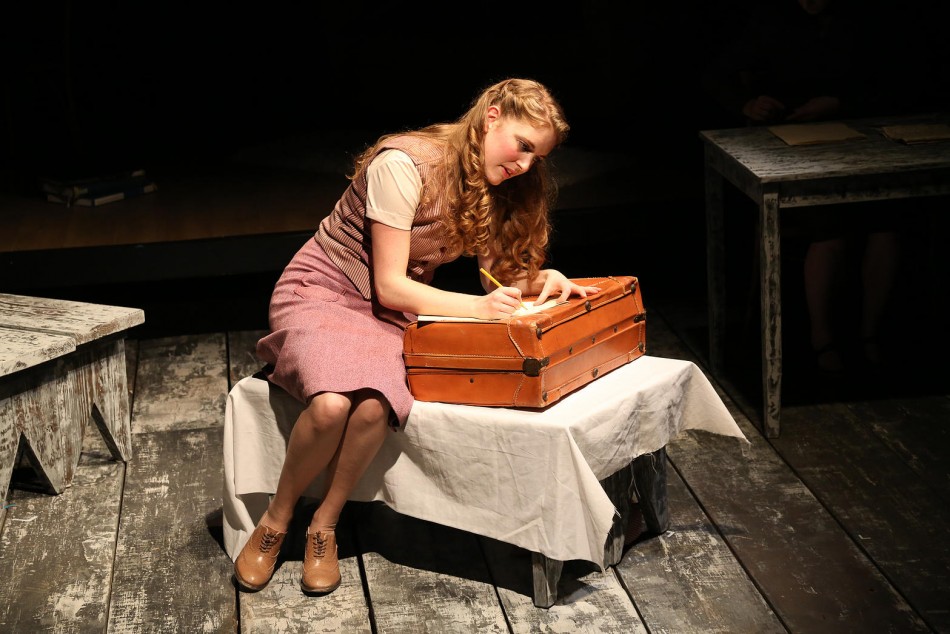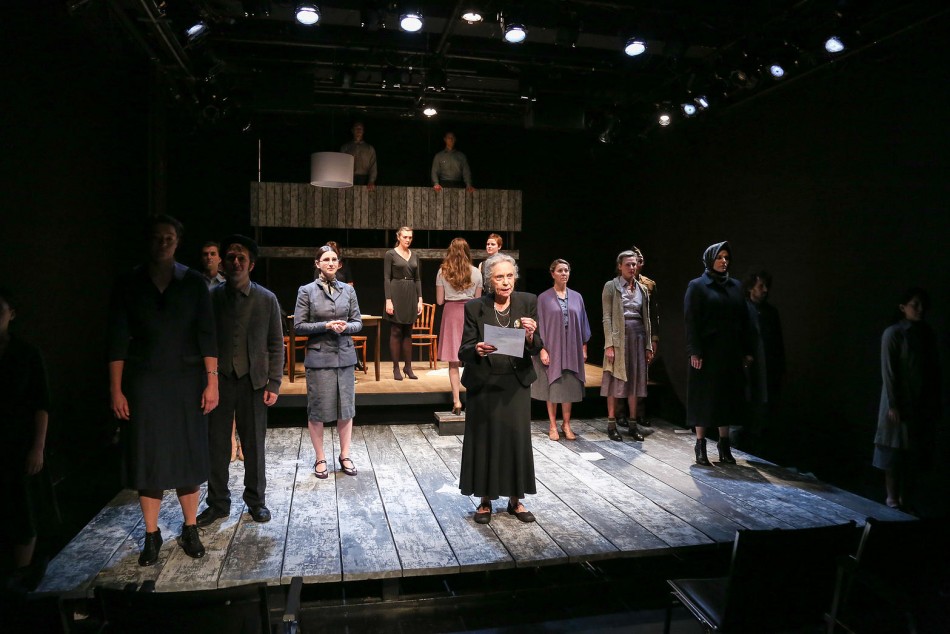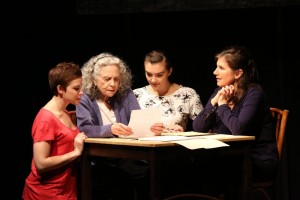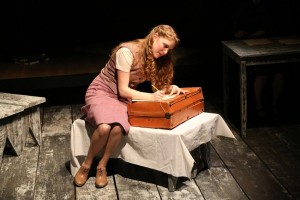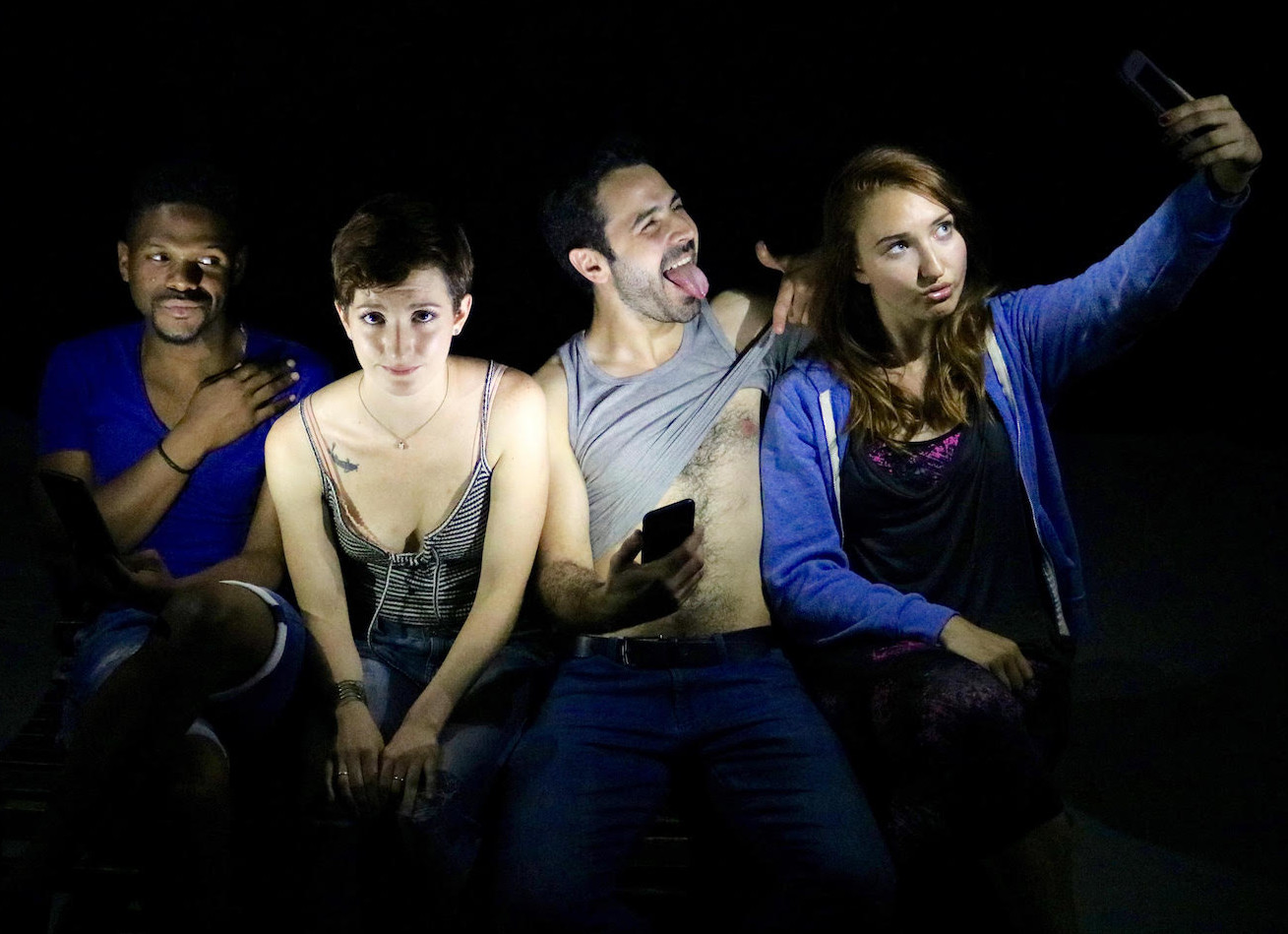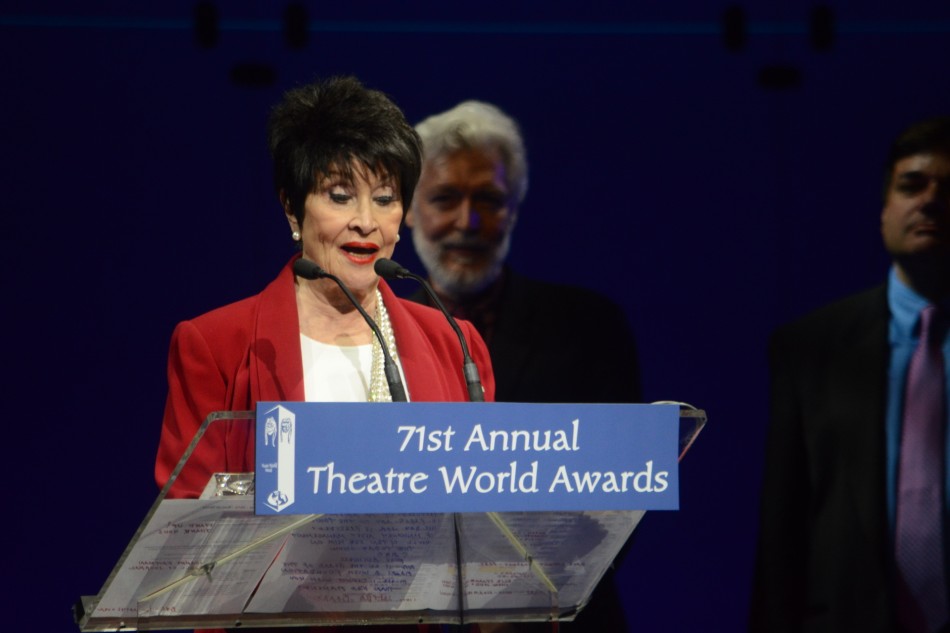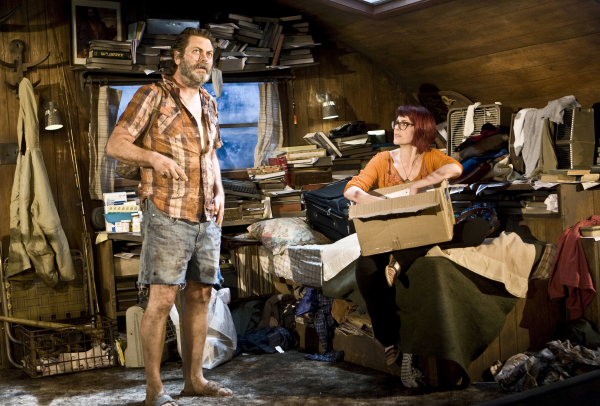A touching and uplifting story of survival under the worst conditions.
by Joel Benjamin
Dramatizing Holocaust events is notoriously difficult. Nothing on a stage could possibly register the same way as the newsreels, history books and records from the trials of the Nazi war criminals. Letters to Sala, however, is a Holocaust-themed drama by Arlene Hutton that manages to conjure some of the horrors by putting them into perspective, chasing the tale of Sala’s misfortunes back and forth between New York City in 2005 and 1940s Eastern Europe. It is a complex, multi-level dramatization of real events, dealing not just with themes of horrible deprivation and attacks on human dignity, but also with family, friendship and, above all, survival.
Sala Kirschner (Anita Keal, quietly regal) gives her daughter Ann (Alice Jankell, tough but motherly) more than three hundred letters she had kept hidden in a tin box, letters written to and from her during World War Two when she was a prisoner in a series of work camps in Eastern Europe. The very existence of these letters is miraculous in itself. The story they tell–the one that Ms. Hutton constructs from them–and their impact on Sala’s descendants, is sad, yet uplifting. The immediate effect is to divide Ann—who wants to give the letters to the New York Public Library for the world to study—from her two daughters, Caroline & Elisabeth (Laura Kamin & Kate McGonigle, both fine). Caroline, in particular, wants to keep the letters so that they can be handed down to subsequent generations. This conflict is handily and satisfactorily resolved by the end of Letters when compromises are made, eventually resulting in this staging of Sala’s story.
Young Sala (Britian Seibert in a strong, feminine performance) experiences upheaval within her close-knit family when she volunteers to go to a labor camp in place of her mother. From the first days in the camp, having met a true friend Ala (Anne Bates, solid throughout), she writes and receives letters, communicating with her mother and her sisters—primarily the eldest: steady, self-deprecating Raizel (Lila Donnolo, a strong presence)—in letters. It’s through this epistolary evidence that we re-live the hardships, sadistic treatment, romances and friendships of Sala. Finally, despite having all the cards stacked against her, after the liberation of the camps she is wooed by an American soldier, Sidney Kirschner (Steven Russo, pleasantly gawky), a romance that leads to a long, happy marriage.
The real life Sala Kirschner is still alive and happily married to Sidney. A photograph of the couple, now wed for seven decades, ends Letters to Sala on an upbeat note.
In her journey through the labor and concentration camps, Sala met many people who helped or hurt her. Eldriede (Rachel Casparian, loveable) gave her food and a relatively cushy job. Sala has two male friends at the camps: Chaim (an eager Andrew Ash) and Harry (a sultry, self-assured Ben Becher) get involved with her, providing emotional and material support in their very individual ways.
Presented by the Journey Company and F.A.B. Women@TGB , Letters has a huge cast of twenty-one very dedicated actors, a number of whom play several roles. Eric Nightengale, the director, has somehow imposed order on this large cast who perform a play that ranges far and wide in time and place. He magically manages to turn the tiny theatre into a living slice of history, avoiding mawkish over-acting and is helped by a clever tiered set designed by Sean Gorski (serving double duty as a Nazi solider) and Janine McCabe’s costumes (a bit too neat and clean, but period perfect). Mr. Nightengale also designed the mood-enhancing lighting and sound design.
Letters to Sala is dramatically concise, despite a two-hour running time, providing a humbling look at a period of history that never should be forgotten.
Letters to Sala. Through October 18 at TBG Theatre (312 West 36th Street, between 8th and 9th Avenues). www.letterstosalany.com
Photos by Michael Priest


